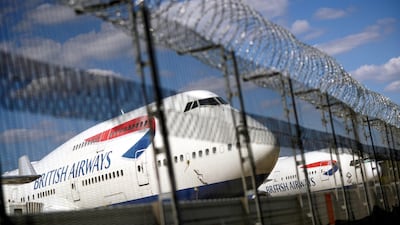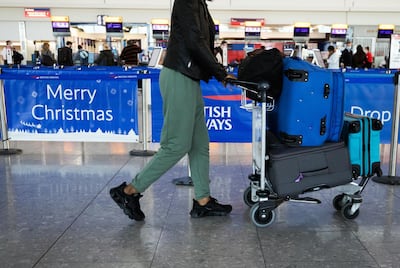Breakthroughs in Covid-19 vaccination had bolstered a worldwide optimism that the worst of the pandemic might be behind us. This has been shaken now by the emergence of a new strain of the virus, which could be almost 70 times more contagious than previous strains. Nonetheless, there is still reason to be confident. The new strain does not appear to be more lethal than older forms of the disease, and scientists are sanguine about the efficacy of recently developed vaccines against it.
Morale across many sectors, however, has been weakened and will take time to recover. This is particularly true for aviation. Knock-on effects of the new strain’s discovery were swift. Dozens of countries have banned travel from the UK, where the new mutation is thought to be most rampant. This happened just days before an expected surge in travel for Christmas and the New Year. The sudden blow emphasises, as the pandemic has throughout the year, the need for industries to continue to adapt and plan for an incredibly challenging business environment.
The UN's World Tourism Organisation has published data revealing that global international arrivals fell by 72 per cent in the first 10 months of 2020, to levels last seen in 1990. A comparison by The National of air traffic levels between 2019 and 2020 shows how much travel by air has ground to a halt this year.
Travellers want to be as safe as possible, and aviation has become a lighting rod for such concerns. Carriers now compete with one another not over the usual deals and perks they offer customers, but rather the safety measures in place to protect them.
Virus protocols in the aviation industry have even intersected with debates about medical ethics. Australian carrier Qantas announced in November that it would require passengers to get vaccinated before it allowed them to fly. A comprehensive body of evidence indicates that new vaccines are safe, but significant numbers of people remain reluctant to take the jabs. Qantas's decision sparked questions over whether it is an airline's place to bar those unwilling to take a jab.
A number of carriers are not expected to survive this pandemic. But being deprived of an airline industry in full vitality has shown us why we need one. From its role connecting people across the globe, and enabling business and tasks as essential as delivering aid, it is obvious that governments must support the sector in its time of need.
For the industry to fully recover, some form of an internationally agreed-upon and standardised process for pandemic-era air safety is needed to minimise disruption to aviation. Moreover, it must be robust enough to weather the future hurdles that Covid-19 will present. The foundation for any such regime should be consistent, reliable and accessible testing and, as it becomes more widespread, vaccination. There is some way to go before this happens and disparities between popular travel destinations are resolved. In the UAE, for example, private Covid PCR tests can cost as little as $23. In the UK, they normally costs around $200.
Inconsistencies in this regard will continue to damage aviation. Governments should remember that airlines carry not just passengers, but often the reputations of entire countries. They and international aviation leaders have eight months of lessons to learn from. If global initiative is not seized soon, nations will risk inviting criticism that they are vandalising this vital and symbolic sector.



